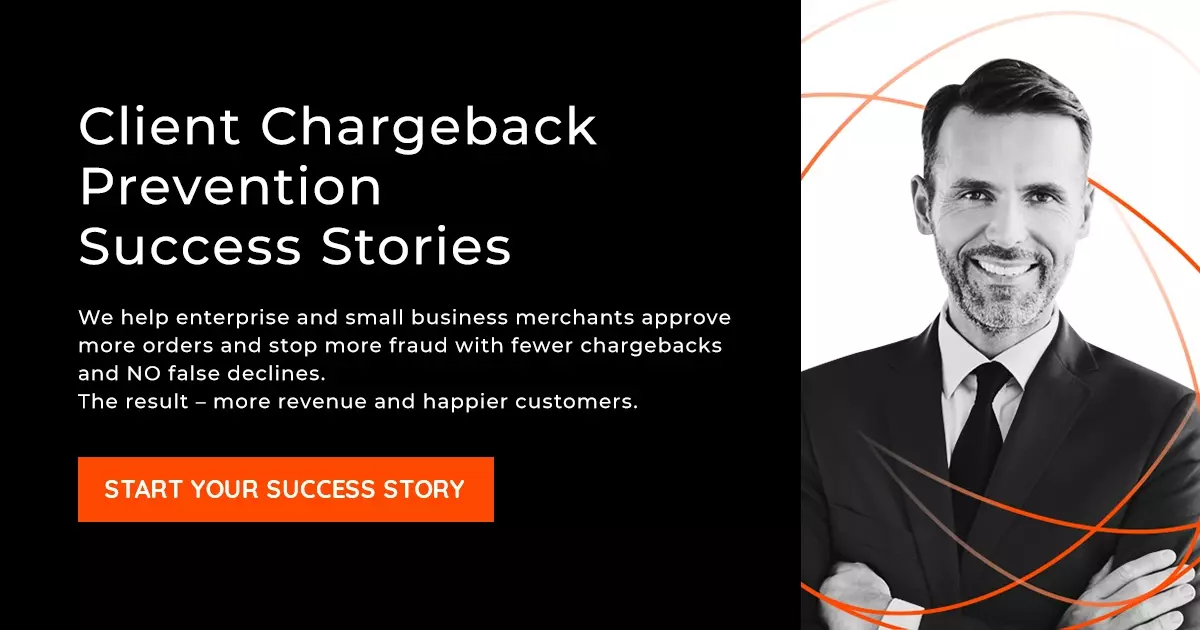SEASON 2 episode 10:
Ecommerce Fraud Stories: Airline & Travel Industry
COVID may have knocked the travel industry down in 2020, but it’s back – and it’s gone online like gangbusters.
From first-time to seasoned ecommerce consumers, more and more people are flying and buying using apps and websites. And the trajectory is upward. The industry is expected to see tremendous growth through 2025 with nearly three-quarters of revenue coming from online sales.
Great news, right? It is … if airline and travel businesses are prepared to handle the swath of fraud attempts that have already begun to plague the industry.
The problem is that this type of fraud is tricky to identify. Simple fraud filters won’t be as effective because the data that travel companies use as identifiers are mostly based on names — and not information like address, phone or email. That opens a world of opportunity for fraudsters. Companies in this industry need to understand how to detect and prevent online fraud if they want to survive.
In this episode of Gateway to Ecommerce, Rafael Lourenco, Executive Vice-President at ClearSale and Faye McEachern, Director of Partners at ClearSale narrate an inside look at how fraudsters tap into the airline and travel industry.
LISTEN NOW
EPISODE THOUGHT LEADERS
-

Faye McEachern
is ClearSale’s Director of Partnerships. In her more than 11 years in the ecommerce industry, she’s discovered that businesses often skip the essential research they need to understand who they can partner with for success.
-

Rafael Lorenco
is ClearSale’s Executive Vice President & Partner. In his 13 years at ClearSale, he has combined the company’s innovation-driven culture and emphasis on communication with a deep understanding of the statistical tools that underpin excellent fraud protection.
Podcast Episode Recap
THE DIGITIZATION OF TRAVEL-RELATED PURCHASES OPENS UP A NEW WORLD OF FRAUD
The airline and travel industry is finally picking up steam again – a good sign after a long hiatus. We can credit much of that recovery to the ecommerce explosion that arose out of the pandemic. This shift to mobile and online bookings is not only here to stay, it’s expected to grow exponentially.
• 17% of ecommerce shoppers’ first online purchase in 2021 was travel-related
• 27% of seasoned consumers say that they were most likely to purchase trips online
• 20% of consumers over the age of 55 are buying trips online
• 72% of total travel industry revenue will come from online sales by 2025
People got used to shopping online — and now that they’re excited about traveling again, they’re happy to include those purchases in their online shopping carts.
Of course, that creates plenty of opportunity for fraudsters who are already taking advantage of online consumers. The challenge? This type of fraud can be harder to spot, which forces travel companies to choose between risking high chargebacks or high false declines – neither of which are good for business.
Stay tuned for upcoming podcast updates and new episodes.
episode Transcript
(Note: Some audio in this transcript was recorded prior to our decision to use “deny lists” as a preferred term. "Blacklist" also known as "deny list" is a common industry term that ClearSale is helping to evolve both internally and globally.)
Intro
You're listening to Gateway to Ecommerce, a podcast by ClearSale. In this series, global ecommerce leaders discuss challenges, best practices, new tech and secrets to success.
Faye McEachern
Welcome to this episode of Gateway to Ecommerce where industry leaders, gain insights, inspiration, and resources for building an ecommerce empire. Today, we're bringing in some ClearSale team members to feature a common story when it comes to ecommerce fraud in the airline and travel industry. As people begin traveling again, they may use the same luggage as before, but how they buy their tickets has changed. In our first State of Consumer Attitudes on Ecommerce, Fraud and Customer Experience in 2021, 17% of first-time ecommerce shoppers said their first purchase was travel related. As the great ecommerce shift continued so did the number of consumers looking to book a getaway from their desktop or mobile device. But now, fraudsters are taking advantage of people, looking for a deal on a much needed vacation to try and sneak past the defenses of consumer and travel industry businesses. In fact, Bolster Research noted a 400% increase in travel related scam activity in the first six months of 2021.
One of the most significant impacts on the travel industry in recent years has been the digitization of the traveler's experience. Mobile and online bookings are expected to grow exponentially over the next five years with demand in the travel industry and the rapid adoption of consumer technologies, along with the new alternative payment and reservation methods, fraud management challenges for all the travel industry continue to grow. While the travel industry was hit hard by COVID 19, it's coming back and it's going online. It's anticipated that the travel and tourism market, 72% of total revenue will be generated through online sales by 2025. In our own research, 27% of respondents say that they were most likely to purchase trips online. And if you think it's only millennials booking trips line, think again, 20% of respondents over the age of 55 are buying trips online. While this is great news for ecommerce businesses in this vertical, it's not without some challenges. Fraud can be more difficult to detect and false declines are not taken well by consumers trying to book a getaway or a business trip. 24% of our respondents would boycott an ecommerce after just one false decline.
In this episode, take an inside look at how fraudsters tap into one of the largest ecommerce industries in the world.
Airport PA
Attention passengers, flight number 247 into Houston is now boarding.
Fraudster
Vacation in the Himalayas. Sounds like a plan. Name, John Smith, check. I mean, that is my real name. There is, well, I can use mine, but I can use my third grade teacher Bill. I wonder how Mr. Brown is doing anyway.
Rafael Lourenco
So let's start by describing the issue itself, selling airline tickets. In airline tickets in airline companies, instead of the shipping address, the most important information is the passenger name, because for physical goods the only data point that has to be true in 99.9% of the cases in airline companies, you can put like a mailing address or ZIP code you want because you can fly anyway, so the fraudster has to put the right passenger name otherwise the passenger cannot fly.
Fraudster
OK. Almost done. And we're in business. Himalayas, here I come.
Secondary Reviewer #1
Not another one.
Secondary Reviewer #2
What is it?
Secondary Reviewer #1
The Himalayas. Fraudster might be at it again. I got to call to verify it.
Secondary Reviewer #2
But how'd they get through this time?
Rafael Lourenco
We were starting to see transactions that were becoming chargebacks, meaning fraudulent transactions that were going through. And those orders were actually being flagged by the system, already triggered the manual review process, but our manual reviewers were not being able to stop those orders from happening.
Secondary Reviewer #1
Well, it's quite simple. It's all triangle fraud.
Secondary Reviewer #2
Like a pyramid scheme?
Secondary Reviewer #1
Not exactly. With triangle fraud, you have the consumer and then the airline website, the fraudster creates a third party like a travel agency that sells the product for the flight. It's a triangle because there's three parties involved.
Secondary Reviewer #2
Oh, that makes sense.
Rafael Lourenco
And I'm selling, let's say, an airline ticket for this passenger. And the person who's buying is actually the person who's paying. However, what the fake travel agents did was they were selling, let's say, to John Smith, airline ticket to John Smith, traveling at this particular airline, but they were selling to him in a much lower price. Let's say half of the price, the ticket was $500 and they were selling it for $250, the fake agency. So they sell it to John Smith, they get $250 through wire transfer or any other type payment method. And they make this purchase on the right website for $500 with a fake credit card. Because they were using a fake credit card because they were using the same device to make multiple transactions, the algorithms were flagging those orders quite easily and sending them through manual review. However, the manual reviewers ended up matching information with the given name, John Smith. Sometimes they even called John Smith.
Secondary Reviewer #1
John Smith. Are you flying from fraudster to the Himalayas?
Fraudster
Yes.
Secondary Reviewer #1
Can you confirm your birthday please?
Fraudster
January 2nd, 2001.
Secondary Reviewer #1
OK. Everything checks out. Thanks for verifying your information. You have a great day, Mr. Smith.
Fraudster
Thanks.
Faye McEachern
This podcast is brought to you by ClearSale, the ecommerce fraud prevention and protection solution partner that integrates seamlessly into your ecommerce business. ClearSale focuses on more than just stopping fraud, we deliver the highest approval rates and lowest false positive rates in the industry. So your legitimate customers enjoy a seamless and safe ecommerce experience. Just like travelers in the airport, fraudsters are blocked at the gates. The result, more trust from your good customers and a more effective, efficient ecommerce fraud operation solution. ClearSale delivers ecommerce fraud, operations solutions tailor made for all companies of all sizes and across all industries.
Rafael Lourenco
Everything else was correct. So then manual reviewers were letting this transaction go through and they ended up being charged back because the credit card was the piece of information that was missing.
Secondary Reviewer #1
Mr. Smith.
Fraudster
Yes.
This is Manuela, the manual reviewer at ABC Airline. I have a few more follow up questions to verify your purchase.
Fraudster
Oh, sure.
Secondary Reviewer #1
How much did you pay for your recent purchase?
Fraudster
250.
Secondary Reviewer #1
Did you pay with a credit card?
Fraudster
Yeah.
Secondary Reviewer #1
Did you buy it on our website?
Fraudster
No. I got it through a travel agency site.
Secondary Reviewer #1
Thank you, Mr. Smith. Your information does not match what we have on file and therefore we cannot process your ticket request at this time.
Fraudster
No, no. Where will I go for vacation?
Secondary Reviewer #1
You can always try Rikers Island, I heard it's lovely there in the fall. Have a great day, Mr. Smith.
Fraudster
Wow. I never. Alcatraz is so much better in the fall.
Faye McEachern
The travel industry, especially airlines, faces additional challenges regarding card non-present fraud. As we learned today with a little TLC fraud can be detected and prevent fraudsters from going on vacations on somebody else's dime.
If you want to take a deeper dive into this topic, you can visit our website at clear.sale.com to learn about how we can help combat fraud in the airline and travel verticals, along with a variety of other global ecommerce industries. We help ecommerce businesses worldwide increase their rev, you with the highest order approval rates, lowest false decline rates and happiest customers. Thanks again for listening to the Gateway to Ecommerce. If you like what you heard today be sure to stay connected and subscribe or follow on all major platforms like Apple, Spotify or iHeart. If you have a question or you'd like us to cover a topic, email us at podcast@clear.sale, we would love to hear from you. To learn how to prevent ecommerce fraud visit our website at www.clear.sale.com Until next time.
Find out how ClearSale can help you prevent chargebacks.






![[TEMPLATE] AUDIOGRAM TILES - Season 2-Jun-23-2023-04-23-52-4220-PM](https://gatewaytoecommerce.clear.sale/hubfs/%5BTEMPLATE%5D%20AUDIOGRAM%20TILES%20-%20Season%202-Jun-23-2023-04-23-52-4220-PM.png)








